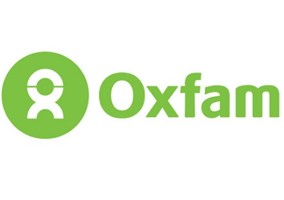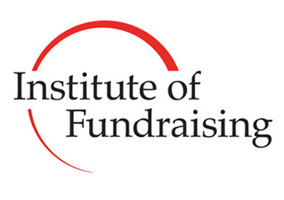The Institute of Fundraising Convention 2018 saw some 3,000 fundraisers walk through the doors of the Barbican in London only to immediately get lost and confused in the pebble-dashed monolith’s bizarrely narrow corridors and far-flung conference rooms. Yes, Frobisher Auditorium 2, I’m very much looking at you.
This was the fourth Convention that I have attended and it was by far the most positive in terms of atmosphere. The travails of the fundraising sector over the last few years have been well documented, but compared to the ashen pall of grief that characterised 2015, the contrite and nervy caution of 2016, or the GDPR-inspired anxiety of 2017, this year was bright and breezy.
For the first time, at least since I’ve been covering Convention, the feeling amongst delegates, volunteers, session leaders and exhibitors alike was one of real hope. A sense that, for better or worse, the sector has collectively turned a corner. That its practitioners can just get on with fundraising again.
Also, the three days of dazzling sunshine probably didn’t hurt either.
All of this is not to say that there aren’t issues still affecting the sector, as we learned. Big and important issues, and ones that shouldn’t be diminished. However, even there, it feels like the sector is moving in the right direction though – even if it is only at a crawl.
Diversity is on the agenda
The theme of Convention this year has been diversity. Or, really, the lack of diversity in many areas of the fundraising sector. There were many conversations and sessions talking about diversity. The IoF has launched its diversity panel, and has promised that this issue is and will remain on its radar. These are positive steps, obviously, but there is much yet to be done.
In the Convention’s closing plenary June Sarpong, broadcaster and author, reminded the gathered fundraisers that “you can’t be properly campaigning and fighting for equality when your own organisations don’t reflect society”.
Carol Akiwumi, director of the Black Fundraising UK group and an IoF trustee, suggested introducing diversity quotas within fundraising teams. She said the sector “needs to be positive about its diversity goals” but also said that diverse fundraisers need to achieve a “critical mass” in order to make change happen.
The three days, in essence then, were punctuated by good conversations on the topic of diversity. Of course it remains to be seen next year what action those conversations have led to.
The sector still has a lot to work on, and it would be an awful shame if, at next year’s Convention, the sector is still having these same conversations without any concrete, measurable progress having been actually made.
Facebook is great, unless you want to claim Gift Aid
In a session about using Facebook to support, engage and recruit donors in various ways, community fundraising relationship manager at Guide Dogs, Amy Petterson, explained that because of the recent changes in algorithms, most organisations' Facebook pages were no longer getting high visibility in online searches and consequently much less traffic.
To provide a channel for local content, Petterson set up her own "professional personal account" called Amy Fun-Draise to create an online community hub for all the work she does with the charity in the Nottinghamshire, Derbyshire and South Yorkshire area.
The site is totally dedicated to the work she and her team does, has around 500 "friends" and provides a forum and links to national content that otherwise would just be sitting somewhere in a Facebook page cul-de-sac. It was free to set up as well.
Her fellow presenter, social media manager at RNIB, Nathan Murray, explained how his team had set up Facebook groups to build and grow peer-to-peer communities of supporters. The programme had proved very successful for building engagement, but he said that the Facebook donate button had a number of issues when it came to raising funds. These included CRM compatibility problems, GDPR compliance challenges and the inability to claim Gift Aid.
Fundraising is like dating, but more fun
A session called: What fundraisers can learn from Tinder, run by head of fundraising at the British Youth Council Victoria Ward and relationship manager at British Heart Foundation Nikki Bell took a cheeky look at the similarities between building and maintaining romantic relationships and fundraising.
The session looked at simple and cost-effective ways in which communications with supporters can be personalised, drawing on successful case studies. These included a focused listening exercise to help you remember small details about what a donor has told you so that you can include references in emails and phone calls.
Other tips included focusing on the donor by putting the emphasis on "you", i.e. the donor, in all communications; rewarding the donor with a thank you at regular intervals; and disposing of the "two-day waiting" rule of dating before a follow-up contact. "In this day and age, with the accessibility to communications tools, if I don't hear from you the next day, you're blocked," warned Bell.
JustGiving improving its crowdfunding offering for charities
In a session on the first day of the Convention, Keith Williams, general manager of customer success and sales at JustGiving, said that the digital giving platform was working on ways of making its hugely successful crowdfunding platform work better for charities.
He said that JustGiving’s crowdfunding offering – as opposed to its more traditional fundraising pages, which are set up by people with the money going directly to a charity – had presented some challenges in the last 12 months.
“We’ve heard back from some of our charity clients that our crowdfunding pages have created something of a disconnect between the organisation and the people using those pages to crowd fund on their behalf,” said Williams.
“That’s why we’re in the process of trialing what we’re calling ‘charity endorsed crowdfunding’”.
While still clearly in the developmental stage, Williams and JustGiving believes allowing charities to endorse crowdfunding pages will effectively cut out the middleman when it comes to distributing that raised income.
Williams said this could be hugely important, particularly in cases of crowdfunding pages which, for whatever reason, go onto raise far more money than had originally been intended.
Additional reporting by Stephen Cotterill.
|
Related Articles












